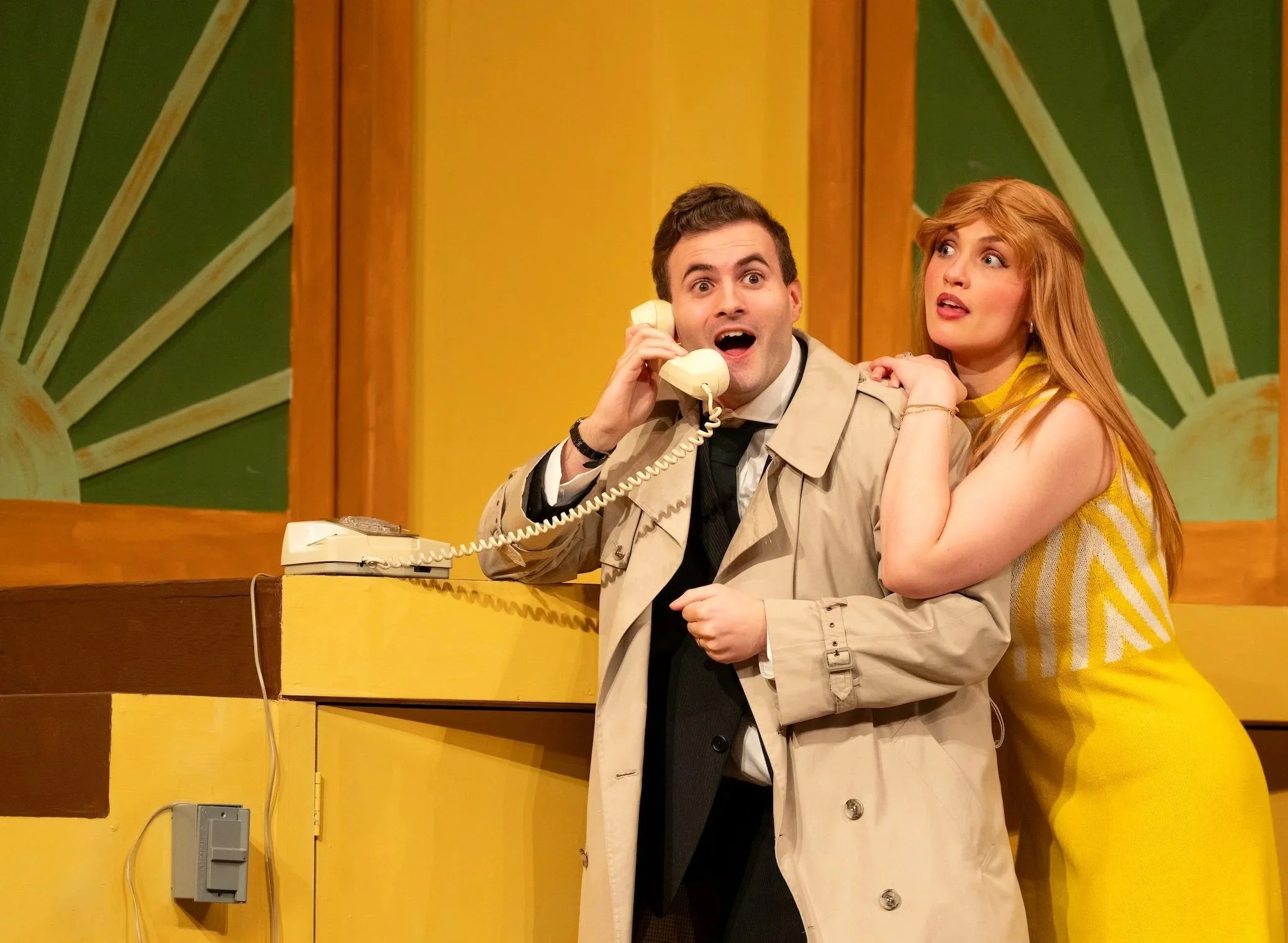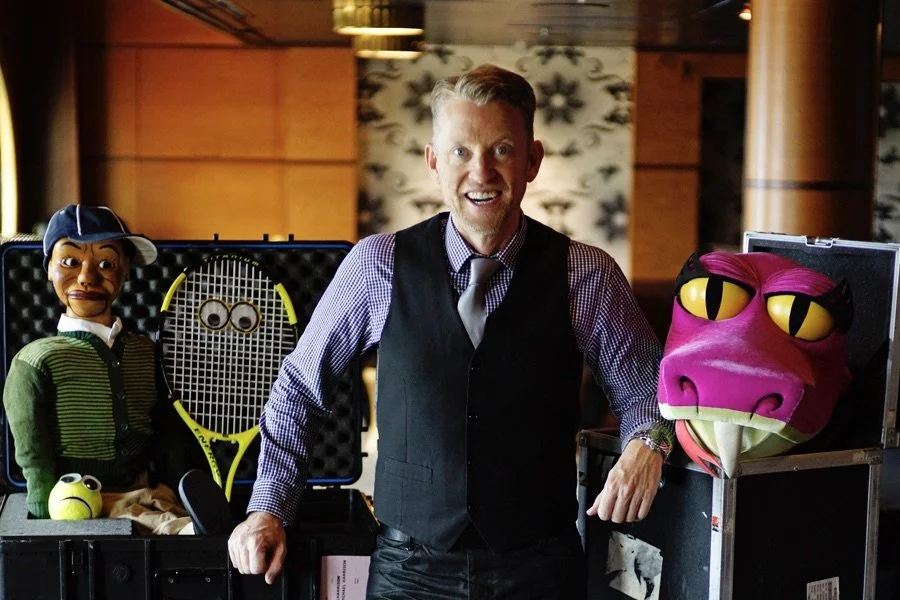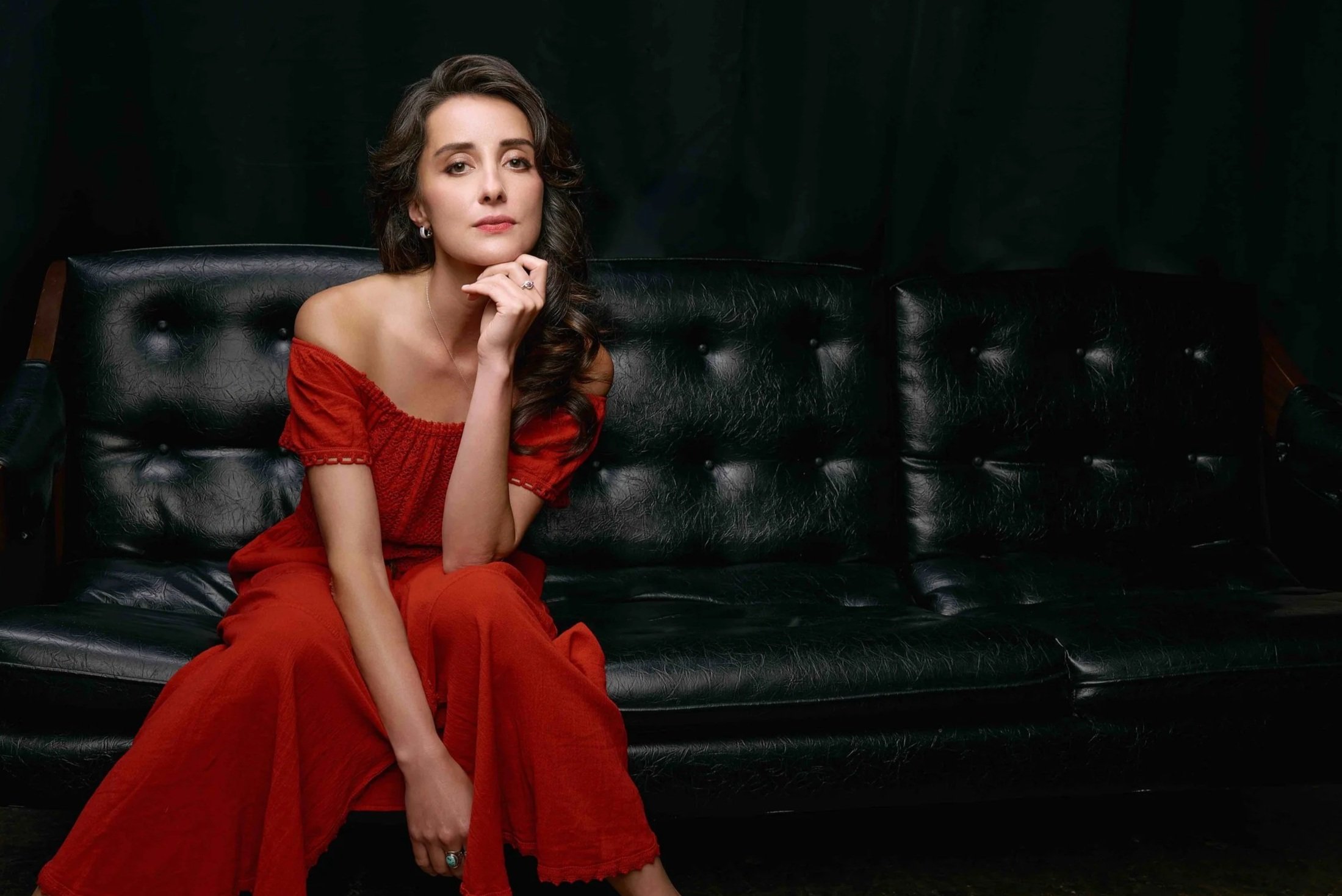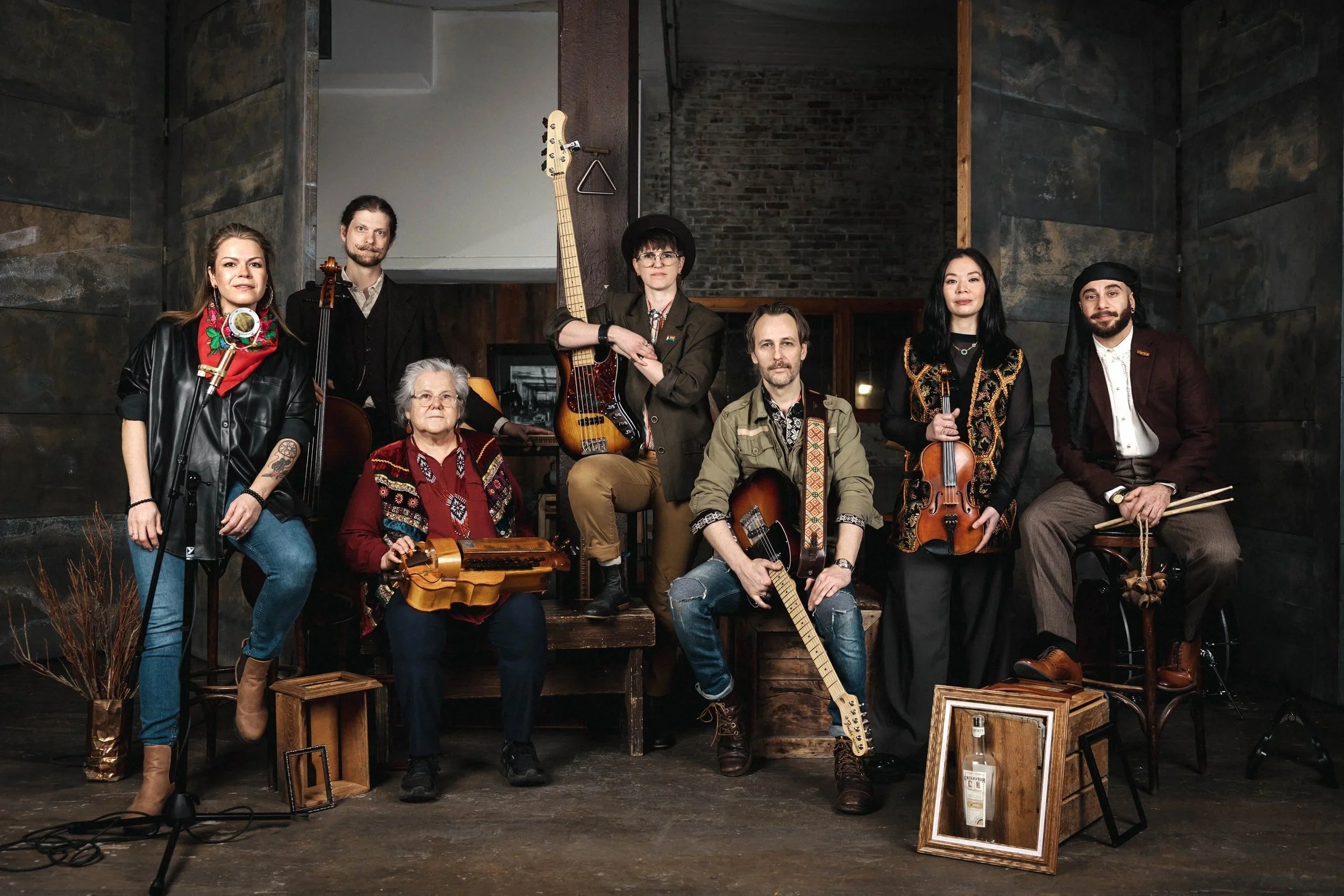Alzheimer's community gives playwright Adam Grant Warren driving sense of purpose in Lights
Touchstone’s Flying Start winner learned to make space for joy and humour in work set in his home province, Newfoundland
In Lights, Adam Grant Warren plays a man who returns home to visit his aging mother at Christmas—only to find her changed. Photo by David Cooper
Adam Grant Warren. Photo by Mike Warren
Touchstone Theatre presents Lights at the Firehall Arts Centre from December 3 to 12
AS A WHEELCHAIR user, Newfoundland-born Vancouver playwright Adam Grant Warren has always disliked stories that centre around a person’s symptoms of disability. Bringing that outlook to a play about someone living with Alzheimer’s Disease has given him not just a unique perspective, but a driving sense of purpose.
In Touchstone Theatre’s new Lights, Evan (played by Warren himself) returns home to Newfoundland to visit his mother (Susinn McFarlen) for a pandemic Christmas—and finds the strong-willed retired teacher struggling with memory loss.
For early drafts of the play, which premieres on stage as winner of Touchstone’s Flying Start Playwrights Competition, Warren relied on memories of a grandmother who suffered from Alzheimer’s. But she was in too advanced a stage of the disease for him to speak to her about it.
“Then my wife read the draft and said, ‘You know, you’re doing this thing that you don't like,’” Warren says.
That drove the playwright to draw more authentically on lived experience, reaching out to the Alzheimer Society of BC to meet patients living with the condition. And it would change the course of his play.
“I can’t tell you how crucial those people were, and how open they were about their condition and their loved ones,” he says, speaking to Stir on a break from rehearsals. “It felt important and it just added so many layers. In writing the play I got to a point where I felt like I owed it to them to do this work.
“One of the things that has become the tentpole of this whole thing is the feedback I kept getting from them: that all of the things people had seen about Alzheimer’s was that it was all just spiralling tragedy,” he adds. “The thing that I kept hearing was there is room for joy and room for hope and room for love, and those things have to be there. And as the play has evolved and grown, it’s been crucial to hold onto humour and joy and love and hope.”
Lights had its origins, before the pandemic, in an experience many transplanted Vancouverites can relate to. Warren had started worrying about his distance from home and aging family members—a geographic divide exacerbated by COVID restrictions. “I’m at that age now where my family is in Newfoundland and I'm starting to feel the distance,” he reflects. “Neither of my parents have had dementia but it is in my family and I do wonder what I would do.”
Warren became interested in exploring what it would mean to return to one’s home and have to make room for change, including stepping up to support the people you love most.
“Evan has a very particular picture of his mother, and he comes home to find this picture changed,” the playwright elaborates. “He has to come to terms with the fact that maybe he doesn't even know his mother as much as he thought….Evan has been the son who’s only half-listened to his mother on Skype calls from across the country.”
With Touchstone’s support, under the direction of veteran Roy Surette, Warren has been able to realize his “kitchen-sinky” dream of setting the play in a fully furnished home that feels like the one in his Newfoundland roots. (Carolyn Rapanos designed the ultra-realistic set.)
“The home space is important to the play, but beyond that, there’s something to me about putting this little piece of the world on the stage and moving around the inside of it,” Warren enthuses. “The front door, the steps, the colour of the siding on the house, the accumulation of the furniture: all those things feel very East Coast.”
What is equally important is that, although Evan’s wheelchair use and cerebral palsy play organically into the plot, Lights is definitely not about them. Warren’s indelible breakout solo The Last Train In, at the 2017 rEvolver Festival, drew on a brutally honest personal experience of wheelchair use: getting trapped overnight in a London train station that had no elevator, and no stationmaster on-duty. Now, in Lights, he integrates disability in unanticipated ways—just as he has tried to defy expectations around Alzheimer’s.
Susinn McFarlen stars as a retired schoolteacher struggling with the early effects of Alzheimer’s Disease in Lights. Photo by David Cooper
“One of the things I like to explore as a playwright is the atypical body moving atypically,” explains Warren, who has also performed with All Bodies Dance Project. “Even as a dancer, I like bodies that you don't expect to move in a particular way to move in that particular way.
“You get to see Evan move through his childhood home in ways that make sense for him,” Warren continues. “He spends a lot of time in the play crawling. As a child that's not a big problem, but as an adult, you know, a 37-year-old man, it's a different thing to crawl around your house.”
Warren adds it’s important, at this stage of his career, that he’s not writing “disability plays”.
“That’s why I don't identify as a person with a disability; I identify as a wheelchair user,” he says. “The play is about love and about care and the distance one will go—and it's not about Evan’s challenges. It’s about Nancy’s, and the way they face this together.”
Warren hopes to take the play back to Newfoundland someday. But an even bigger dream is that the people living with Alzheimer’s, who had so much of an influence on the final draft of Lights, would be able to see the results of their generosity.
“They did all the work and they helped so much--they gave so much and they shared so much,” Warren explains with emotion, “and I really just hope that they’re still here—capital-H Here—to share it and experience it in whatever way they can.”















